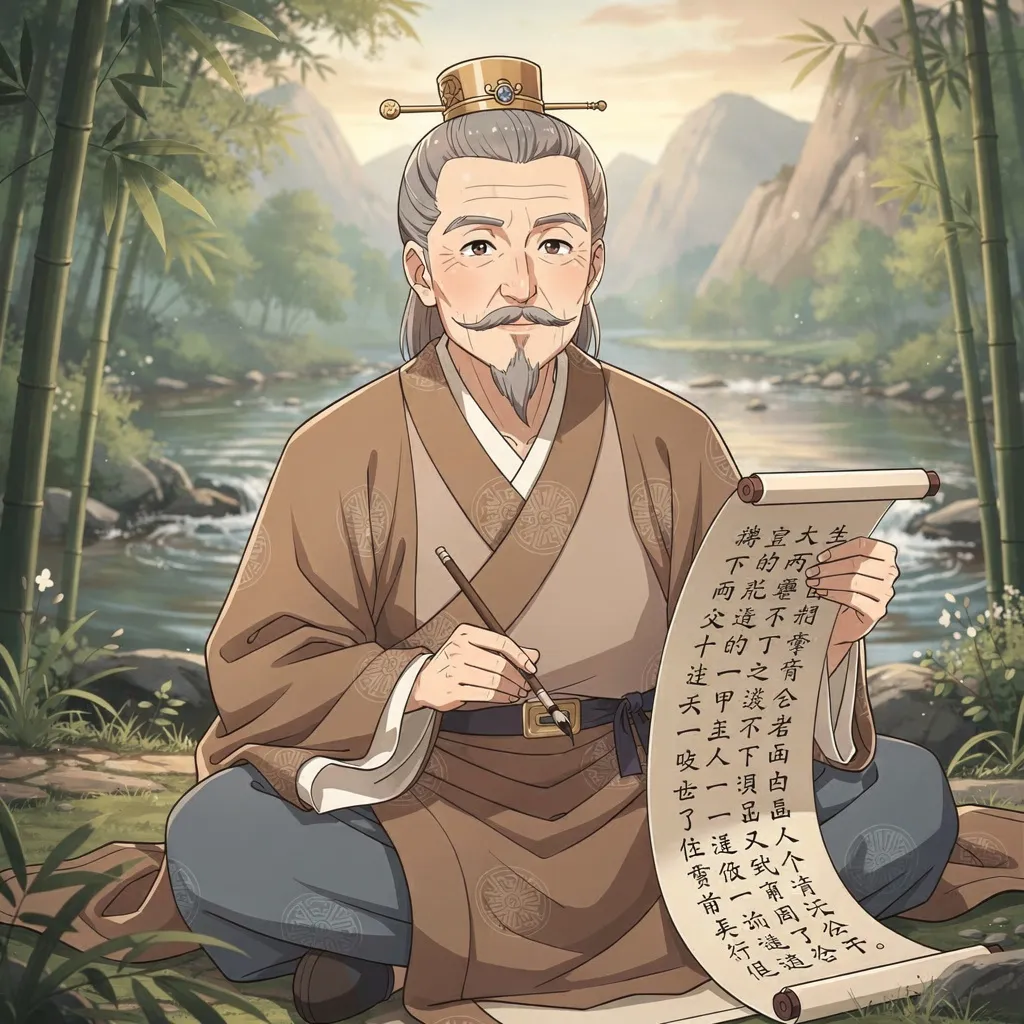
Du Fu
712–770
Being one of China’s greatest poets, known for poems about kindness, nature, and caring for others
Early Life
Du Fu was born in the year 712 in China during the Tang Dynasty, a time when art and learning were very important. His family valued education, so Du Fu learned to read and write from a young age. He loved books and poems and spent many hours studying classic works.
As a boy, Du Fu dreamed of becoming a government official. In those days, people had to pass very hard tests to get government jobs. Du Fu studied for these exams, but things did not always go as planned.
Becoming a Poet
Even though Du Fu did not get the job he hoped for, he never gave up on writing. He traveled to many places and met other poets, including the famous poet Li Bai. Their friendship helped Du Fu grow as a writer.
Du Fu wrote poems about everyday life. He described families, farmers, children, and the beauty of nature. He also wrote about being kind and caring for people who were having a hard time.
Hard Times and Strong Words
During Du Fu’s life, China went through a very difficult period with unrest and change. Many people lost their homes or struggled to find food. Du Fu saw these problems and wrote poems to show how people felt.
Instead of turning away, he used his words to speak up for others. His poems showed honesty, sympathy, and hope. Because of this, people later called him the “Poet Sage,” which means a wise and caring poet.
Achievements
Du Fu wrote more than 1,400 poems, and many are still read today. His poems are studied in schools and shared by families across China and around the world. He helped poetry become a way to understand real life, not just fancy ideas.
His writing style was careful and clear, but also full of feeling. Du Fu showed that poetry could help people understand each other better.
Legacy
Du Fu passed away in 770, but his words live on. He is remembered as one of the greatest poets in Chinese history. His poems remind us to be kind, notice the world around us, and care for others.
Even today, kids and adults read Du Fu’s poems to learn about history, feelings, and the power of words.
🎉 Fun Facts
Du Fu wrote poems about his family, including his children.
He is often called the “Poet Sage” because of his wisdom and kindness.
Du Fu and Li Bai are two of the most famous poets in Chinese history.
Some of Du Fu’s poems describe simple things like rain, houses, and gardens.
His poems are still memorized by students today, more than 1,000 years later.